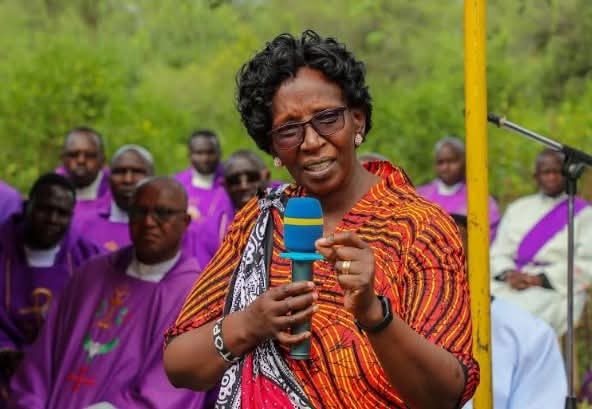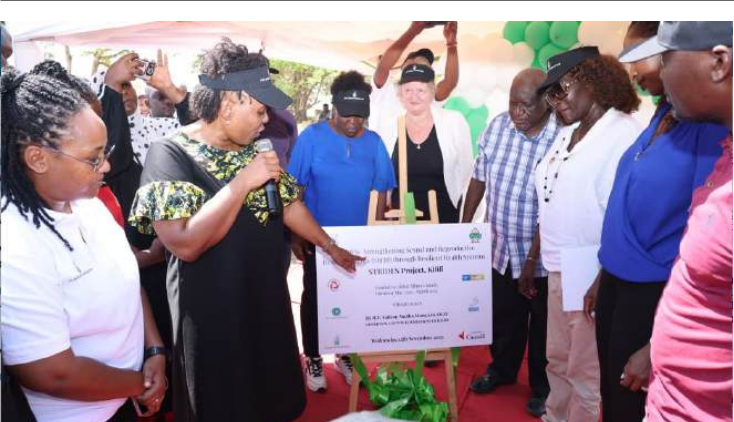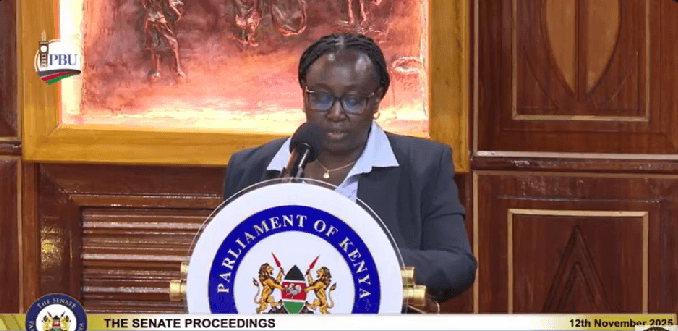

Kilifi County is still confronting a painful reality
as teenage pregnancy remains one of its most stubborn and devastating
challenges.
In villages across Ganze, Kaloleni and Malindi,
stories of girls whose childhoods are cut short by early motherhood have become
all too common.
Data from the county government says that last year, more
than 7,000 teenage girls in Kilifi gave birth.
Although the number has dropped to about 4,500 by
October, the figure is still a stark reminder that thousands of young lives
continue to be derailed.
Behind the statistics are deeper, entrenched problems, including poverty, harmful cultural norms and limited access to health and
social support systems.
Local leaders and child welfare advocates said the
county is grappling with a crisis that demands urgent, coordinated
intervention.
It is against this backdrop that the Strides (Strengthening Sexual Reproductive Health and Rights (SRHR) through Resilient Health Systems) programme was launched at Ganze Health Centre.
Ganze subcounty has consistently recorded the highest
burden of teenage pregnancies in Kilifi county.
Kilifi Deputy Governor Florence Chibule described the
county’s situation as “deeply unfortunate,” citing a rise in cases of
defilement and incest that often go unreported.
“Kilifi, like many counties across the country,
continues to face unique challenges in ensuring every young person and every
woman enjoys quality healthcare,” she said.
Chebule warned perpetrators against taking advantage
of vulnerable girls from poor families.
“One gender has taken advantage of poor families for
free sex. This must stop. As a county leadership, we will no longer entertain
this vice,” she said.
Although Kilifi has recorded some progress, it still
ranks third nationally in teenage pregnancy prevalence.
Leaders are also worried that the long holiday may
expose girls to societal vices.
“Teenage pregnancy continues to destroy the dreams of
our girls who are forced to drop out of school. We must act collectively,” she
said.
The crisis is further compounded by rising HIV
infections among adolescents tied to early sex, low condom use and limited
access to youth-friendly reproductive health services.
Amid these challenges, the launch of the Strides for SRHR
initiative has ignited renewed optimism.
Susan Otieno, CEO of the Aga Khan Foundation Kenya, said
the seven-year project, running from 2025–32 is valued at CAD 25 million (Sh
2.3 billion). It is funded by the Government of Canada.
The initiative brings together a powerful consortium
— the Aga Khan University (AKU), Aga Khan Health Services (AKHS), the
International Centre for Reproductive Health Kenya (ICRHK) and Moving the
Goalposts (MTG), working alongside community groups and the Kilifi government.
The programme will focus on five subcounties: Kilifi
North, Kaloleni, Rabai, Malindi and Ganze.
It seeks to reduce teenage pregnancy, tackle
gender-based violence and strengthen the links between communities and health
facilities.
“Our goal is to ensure women and girls can equitably
access quality, inclusive and people-centred healthcare,” Otieno said.
Strides also seeks to empower women and adolescent
girls to make informed decisions, tackling barriers ranging afrom ccess to health
facilities to financial limitations, weak infrastructure and low awareness of
reproductive health services.
Kilifi health executive Peter Mwarogo welcomed the
investment, calling it timely and transformative.
“This programme is timely for Ganze and other
high-burden regions. It will help strengthen community health structures and
reduce teenage pregnancies through increased access to essential health
services,” he said.
Gender executive Ruth Dama Masha said the renewed
commitment could change the trajectory of thousands of young lives.
“As Kilifi embarks on this renewed fight against GBV
and teenage pregnancies, local leaders hope that Strides will not only improve
healthcare outcomes, but also restore the dreams and dignity of thousands of
girls whose futures have been cut short by preventable injustices,” she said.
Instant analysis
Kilifi county’s struggle with teenage pregnancy and
gender-based violence reflects deep-rooted socio-economic and cultural
challenges that continue to derail the futures of thousands of girls. While the
county has recorded a reduction in teen births, the numbers remain high. The
Strides initiative, marks a significant opportunity to strengthen community
health systems, expand youth-friendly services and empower girls with
information and support.

















